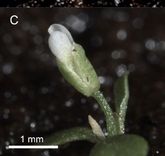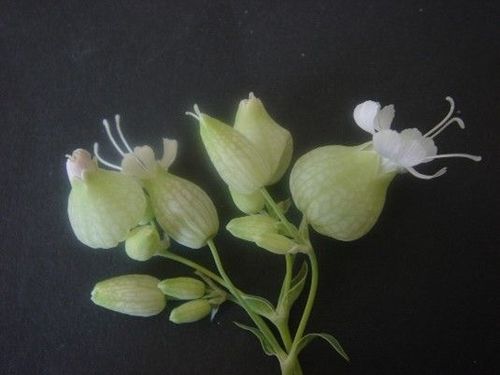Our lab focuses on two main research topics related to plant reproduction:
Floral induction in the genus Chenopodium
Our main model plant is Chenopodium ficifolium, a close relative of the important crop Chenopodium quinoa. C. ficifolium has become a suitable diploid model for studying flowering and development in the tetraploid C. quinoa.
We discovered that the gene FLOWERING LOCUS T-like 2-1 from both C. ficifolium and C. quinoa is a strong activator of flowering. When introduced into Arabidopsis, it induced precocious flowering at the cotyledon stage (Abeyawardana et al. 2023).

Fig. 1: Primary transformant of Arabidopsis Col-0 carrying the CfFTL2-1 gene
Plant mitochondrial genomics and mitochondria-nuclear interactions, particularly Cytoplasmic Male Sterility (CMS).
Our main experimental species in Silene vulgaris (bladder campion), the emerging model to investigate gynodioecy and CMS in wild plant species.
We developed the approach how to assemble extremely complex, highly rearranged, and polymorphic mitochondrial genomes in this species.

Fig. 2: Silene vulgaris
The chromosome level assembly of S. vulgaris published recently (Moraga et al. 2025) opens up new avenues for studying the impacts of gynodioecy and CMS on both the nuclear and mitochondrial genomes.